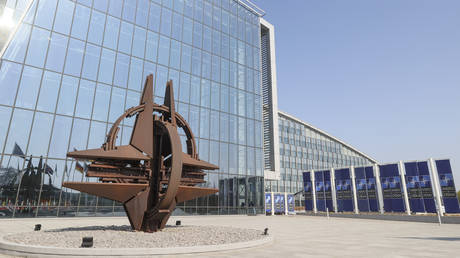ARTICLE AD BOX
President Vladimir Putin said on Tuesday that Russia was against the deployment of nuclear weapons in space, and his defence minister flatly denied U.S. claims that Russia was developing a nuclear capability for space.
A source familiar with the matter told Reuters that Washington believes Moscow is developing a space-based anti-satellite nuclear weapon whose detonation could disrupt everything from military communications to phone-based ride services.
"Our position is clear and transparent: We have always been categorically against and are now against the deployment of nuclear weapons in space," Putin told Sergei Shoigu, his defence minister.
"We urge not only compliance with all agreements that exist in this area, but also offered to strengthen this joint work many times," Putin said.
He added that Russia's activities in space did not differ from those of other countries, including the United States.
The clearest public sign that Washington thinks Moscow is working on a space-based anti-satellite nuclear weapon was a White House spokesperson's comment on Thursday that the system being developed would violate the Outer Space Treaty.
The 1967 treaty bars signatories - including Russia and the United States - from placing "in orbit around the earth any objects carrying nuclear weapons or any other kinds of weapons of mass destruction."
The New York Times has reported that the U.S. intelligence was related to Russia's attempts to develop a space-based anti-satellite nuclear weapon.
'No such projects'
Commenting on the U.S. allegation, Shoigu said there were no plans of the kind outlined by the unidentified sources in the United States.
"Firstly, there are no such projects - nuclear weapons in space. Secondly, the United States knows that this does not exist," Shoigu told Putin.
He accused the White House of trying to scare U.S. lawmakers into allocating more funds for Ukraine as part of Washington's plan to inflict what he said was a strategic defeat on Russia.
He said the second reason for the leaked information about the alleged Russian weapon was to encourage Russia to engage in a dialogue about strategic stability.
Russia's full-scale invasion of Ukraine in February 2022 has led to the most serious confrontation between Moscow and the West since the 1962 Cuban missile crisis, and the post-Cold War arms control architecture has crumbled.
Putin said Russia had never been against discussions about strategic stability, but he said it was impossible to divide what he said was the West's aim to defeat Russia and talks about strategic security.
"If they seek to inflict a strategic defeat on us, then we must think about what strategic stability means for our country," Putin said.
"Therefore, we do not reject anything, we do not give up anything, but we need to figure out what they want. They usually want to achieve unilateral advantages. That's not going to happen."
Putin did not rule out talks at defence and foreign ministry level with the United States on strategic stability.
(Except for the headline, this story has not been edited by NDTV staff and is published from a syndicated feed.)
.png)
 9 months ago
2
9 months ago
2








 English (US)
English (US)